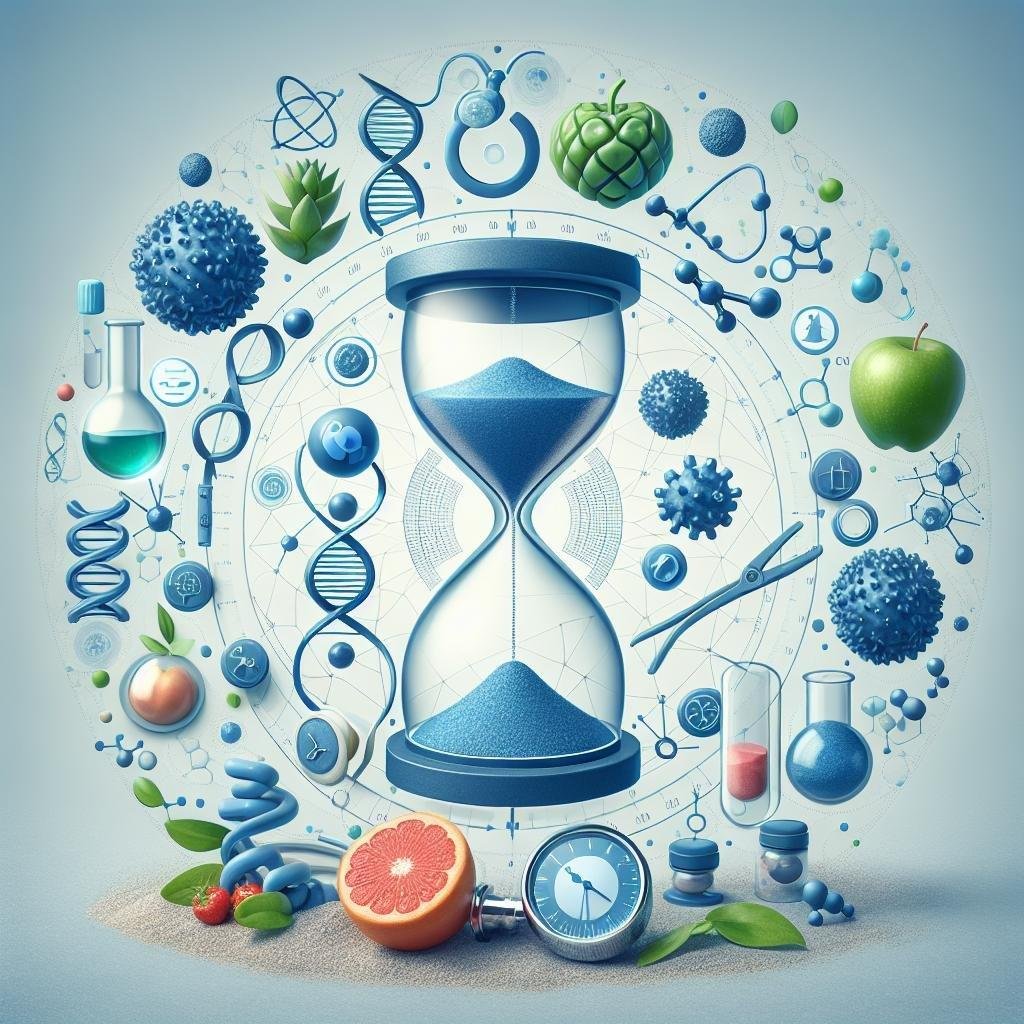In the labyrinthine world of cellular biology, the mechanisms that govern our body’s maintenance and repair often unfold like a finely choreographed dance. Among the myriad players in this intricate performance, a rising star has recently captivated the attention of scientists and health enthusiasts alike: intermittent fasting. This ancient practice, revered in various cultures for its spiritual and physical benefits, has made a remarkable resurgence in modern wellness discussions. But what lies beneath the surface of this dietary strategy? At the heart of its allure is the phenomenon of autophagy—a cellular cleanup process that plays a crucial role in rejuvenating and repairing our body’s systems. In this article, we will explore the dynamic interplay between intermittent fasting and autophagy, unraveling how deliberate periods of abstaining from food can kickstart cellular repair mechanisms, fend off disease, and promote longevity. Join us as we delve into the science behind this fascinating relationship, illuminating the potential benefits that may lie in the rhythm of fasting and feasting.
Understanding Intermittent Fasting and Its Link to Autophagy
Intermittent fasting (IF) has emerged as a popular dietary strategy that not only aids in weight loss but also unlocks profound cellular benefits, particularly through the process of autophagy. During fasting periods, the body enters a state where it begins to rejuvenate itself by breaking down and recycling damaged cells and cellular components. This process is crucial for maintaining cellular health and function. The benefits of autophagy shine during these windows of fasting, enabling the body to:
- Enhance cellular repair: By removing dysfunctional proteins and organelles, autophagy supports overall cellular recovery.
- Boost metabolism: Fasting triggers metabolic changes that can improve insulin sensitivity and promote fat utilization.
- Reduce inflammation: Autophagy helps to modulate inflammatory responses, potentially lowering the risk of chronic diseases.
Research continues to demonstrate how different fasting protocols influence autophagy levels. One key finding is that the duration and frequency of fasts play a significant role in how effectively autophagy is activated. Shorter fasting periods, such as the 16/8 method (where eating is confined to an 8-hour window), may encourage autophagy, while longer fasts, like 24-48 hours, can intensify the process. Here’s a brief overview of different fasting methods and their potential impacts on autophagy:
| Fasting Method | Duration | Possible Effects on Autophagy |
|---|---|---|
| 16/8 Method | 16 hours fasting, 8 hours eating | Moderate activation |
| 5:2 Diet | 500-600 calories for 2 non-consecutive days | Moderate activation with caloric restriction |
| Full Day Fasting | 24 hours | Significant activation |

The Cellular Clean-Up: How Autophagy Promotes Repair and Regeneration
Within the intricate landscape of our cells, autophagy acts as a vigilant custodian, sifting through cellular debris and reclaiming valuable resources. This process primarily activates during periods of fasting or metabolic stress, clearing out damaged organelles and misfolded proteins, effectively setting the stage for enhanced cellular function. By embracing the principles of intermittent fasting, individuals can naturally bolster this process, which leads to multiple benefits:
- Enhanced Repair Mechanisms: Autophagy removes dysfunctional components, paving the way for better cellular repair.
- Improved Cellular Health: Clearing out toxins and waste materials promotes longevity at the cellular level.
- Increased Regenerative Capacity: Healthy cells facilitate faster recovery from injuries and stressors.
The synergy between autophagy and intermittent fasting underscores the potential for profound health benefits. Research suggests that activating this self-cleaning process not only fosters a rejuvenated cellular environment but also influences overall metabolic health. As cells recycle damaged parts and optimize energy for repair, the result is a holistic upliftnet to overall well-being:
| Impact of Autophagy | Potential Outcomes |
|---|---|
| Cellular Repair | Stronger defenses against stress and injury |
| Weight Management | Optimized fat metabolism |
| Decrease in Chronic Diseases | Reduced risk of age-related illnesses |

Strategies for Effective Intermittent Fasting to Boost Autophagy
Maximizing the benefits of intermittent fasting involves not just the timing of your eating window, but also the quality of the food you consume and how you prep your body for this process. Hydration is crucial; ensure you’re drinking plenty of water throughout your fasting period. Additionally, consider incorporating practices such as light exercise or mindfulness meditation, which have been shown to enhance autophagy. Focusing on nutrient-rich foods during your eating window is essential. Aim for a balanced intake of proteins, healthy fats, and complex carbohydrates to provide your cells with the resources they need for repair.
Setting a consistent intermittent fasting schedule can significantly boost your body’s ability to enter autophagy swiftly. For instance, many find success with the popular 16/8 method, where you fast for 16 hours and limit your eating to an 8-hour window. Another effective strategy is the 5:2 approach, which allows you to eat normally for five days and restrict intake on two non-consecutive days. Consider maintaining a journal to track your meals, moods, and energy levels during fasting to identify what works best for you. Here’s a simple comparison of popular fasting methods:
| Fasting Method | Fasting Length | Eating Window | Suitability |
|---|---|---|---|
| 16/8 Method | 16 hours | 8 hours | Beginners & Daily Fasters |
| 5:2 Approach | 24 hours (2 days) | Normal on other days | Flexible Schedulers |
| Eat-Stop-Eat | 24 hours (1-2 times a week) | Normal on other days | Experienced Fasters |

Potential Benefits and Considerations of Fasting for Cellular Health
Fasting has emerged as a fascinating approach to enhancing cellular health, largely due to its role in triggering autophagy—the body’s natural process for cleaning out damaged cells and regenerating new ones. This process can lead to a variety of potential benefits, including:
- Rejuvenation of cells: By eliminating damaged components, fasting can promote cellular repair and regeneration.
- Reduction of inflammation: Some research suggests that fasting may lead to decreased levels of inflammation, a key factor in many chronic diseases.
- Improved metabolic function: Enhanced insulin sensitivity and metabolic health may result from regular fasting practices.
However, while the benefits of fasting can be significant, it is crucial to consider individual circumstances and health conditions when incorporating fasting into one’s routine. Some important considerations include:
- Potential side effects: Individuals may experience fatigue, irritability, or nutrient deficiencies if fasting is not approached thoughtfully.
- Medical conditions: Those with underlying health issues, such as diabetes, should consult with a healthcare professional before beginning any fasting regimen.
- Personal lifestyle: Integrating fasting sustainably into daily life is important; it should align with one’s habits and preferences for lasting benefits.
Wrapping Up
the intricate dance between intermittent fasting and the cellular processes of autophagy and repair paints a compelling picture of our body’s ability to adapt and thrive. As we delve deeper into understanding the biological symphony that governs our health, it becomes evident that practices like intermittent fasting may offer us not just a path to weight management, but also a powerful tool for rejuvenation at the cellular level. As always, it’s essential to tread thoughtfully and consider personal circumstances, seeking guidance when needed. With ongoing research illuminating new possibilities, the journey toward harnessing these natural mechanisms invites us to explore further the remarkable potential hidden within our own biology. As we close this chapter, let us remain curious and open to the possibilities that await in the realm of health and well-being.

